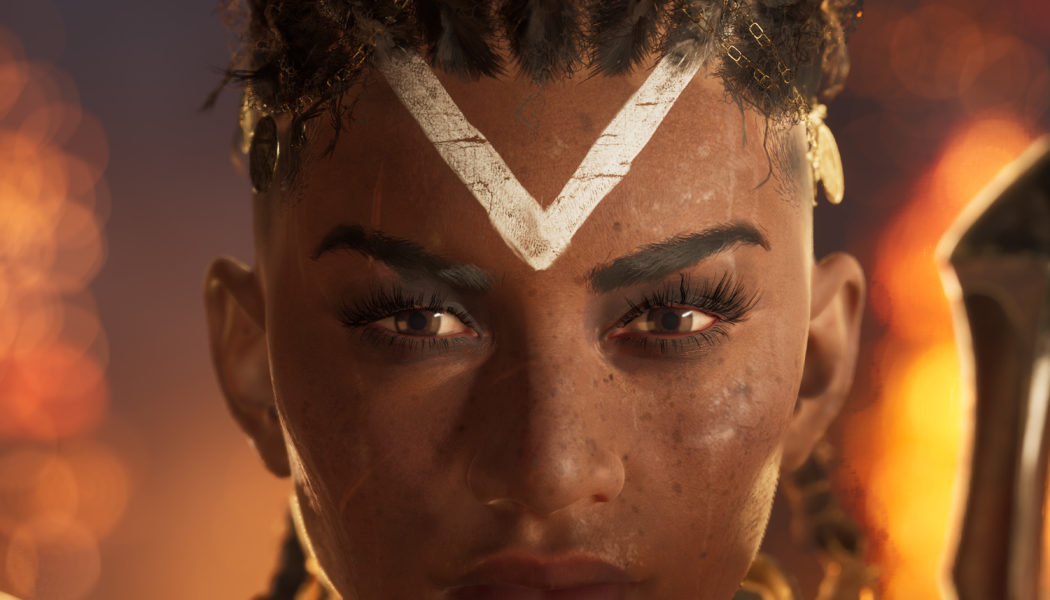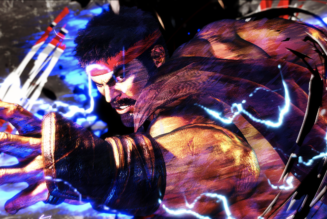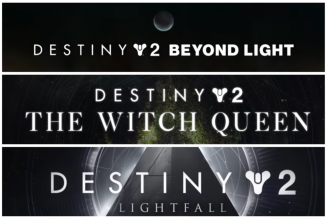It has some clever ideas but struggles with a lack of polish and repetitive gameplay.
Share this story
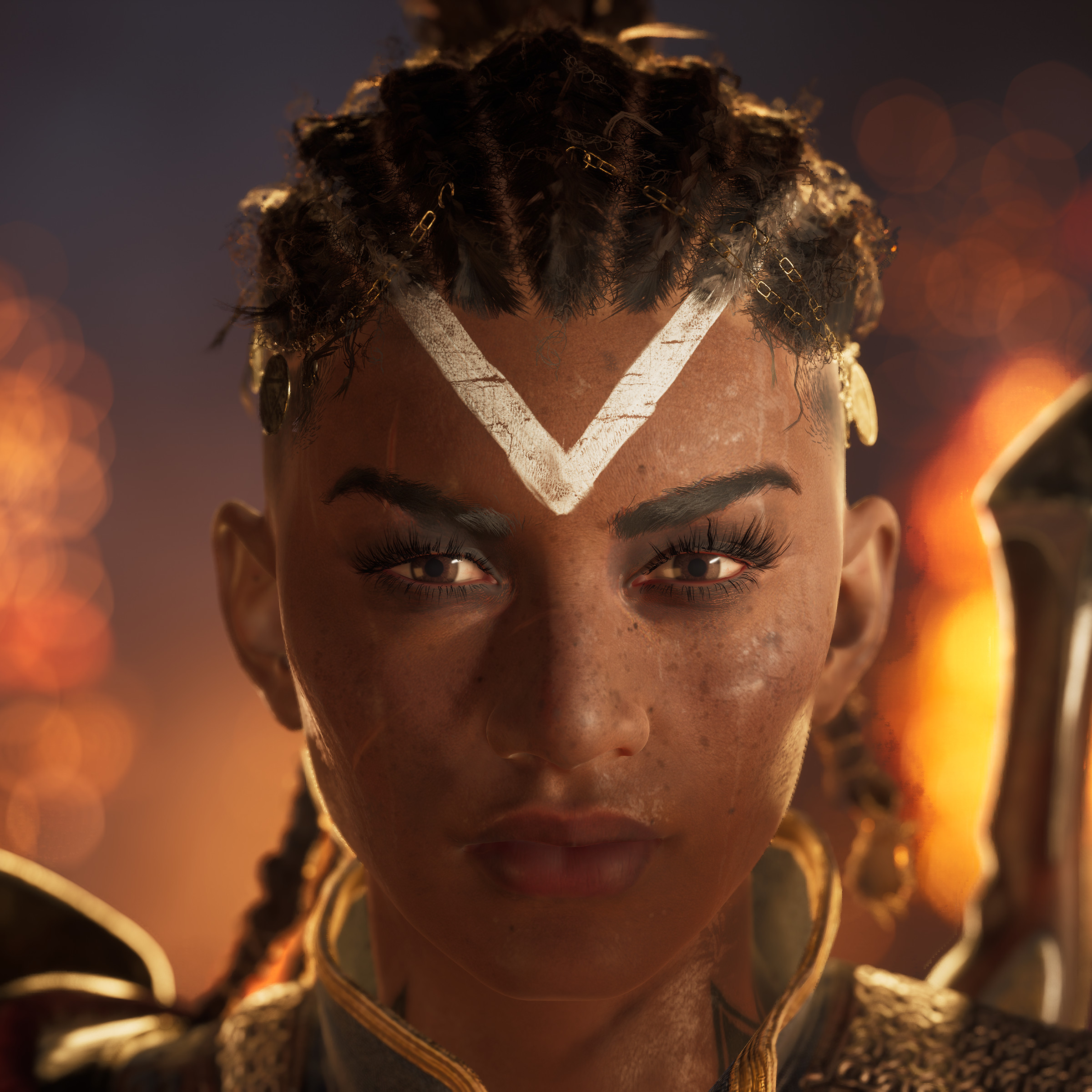
In a world terrorized by gods, Flintlock: The Siege of Dawn sees you step into the vengeful boots of Nor Vanek — armed with a cutlass, a flintlock, and a tiny magic god. The steampunk, open world of Kian needs saving as the armies of the dead flood from a magical doorway. But despite some clever ideas, an intriguing cast with excellent performances, and varied environments, this third-person souls-“lite” action RPG can’t escape the trappings of a clearly limited budget and lack of polish — which is a shame because it could’ve been an excellent way into the genre.
Players are thrust into the shoes of Nor during a battle that looks like it’s straight from both World War I and every generic dark fantasy. There are soldiers in uniform, with muskets and flintlocks, firing at zombies pouring out from some strange gateway in the distance. There are trenches and barbed wire, helmets on infantry, and medals on generals, while magical beings tear apart Nor’s comrades.
While the game does an acceptable job of introducing you to its mechanics, it does absolutely nothing when it comes to the setting. Even now, I cannot tell you much about the world. I can’t even tell you what “gods’’ are, aside from the fact that you are tasked with killing them.
Kills earn Nor reputation points that linger like “souls” or Bloodborne’s Blood Echoes. However, unlike soulsborne games, you can immediately claim the reputation. If you do not claim the reputation, you bolster a multiplier, which exponentially increases how much reputation you then earn, through each subsequent kill. However, if you’re hit even once, you lose it all. It’s a brilliant risk-reward system, balancing the unfairness of losing everything against the safety of immediate usage. You can use reputation points on upgrades, to purchase items, and so on.
The combat is fast-paced, like the new God of War games, allowing Nor to use a variety of melee weapons, her flintlock, or a sniper rifle on the fly. She also gains access to magic after she meets an adorable god called Enki. He is in the shape of a cute fox with a soothing voice and wants to assist Nor in her goal of defeating the other gods. Like God of War, you have a constant companion, with whom Nor exchanges charming dialogue, commenting on the world or situation. Their relationship grows from one of distrust to friendship and proved the golden thread for me throughout the experience.
With Enki as both the source of magic and a wielder himself, combat turns into a balletic foray into weapon usage, dodging, and spells. Unfortunately, unlike soulsbornes or God of War, the animations are stiff and do not feel responsive. Fluidity and timing are key in such games, and the lack of polish isn’t merely “nice to have” but essential, given the split-second decisions and sense of flow constitutive of these experiences. This is especially felt in boss or miniboss fights, or against larger enemies, where their stiff animation is readily apparent.
The game is also cursed by repetition: similar enemies resulting in similar fights, with only the background changing. Dying and respawning alongside enemies is of course a key staple of soulsborne games, but enemy variety helped undermine sterility. Flintlock does not really have this.

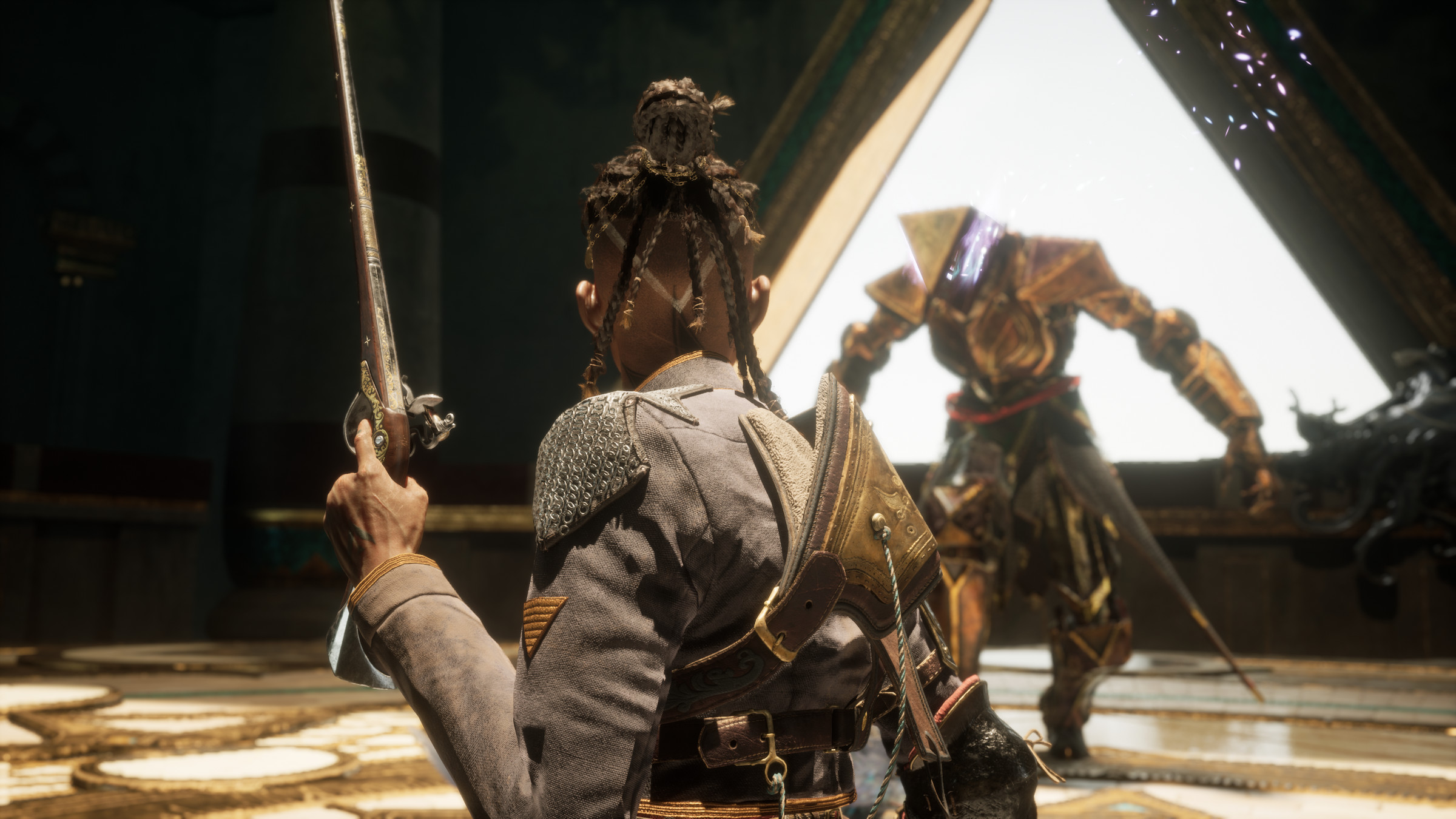
The lack of polish is most damning here. You can see it in the game’s dated graphics, even if the designs remain creative. Stiff animations are compounded by faces that lack expression. The environments — ranging from snowy mountains to rock lands, deep caves to magic arenas — are varied, but it’s hard to ignore the ugly textures, poorly drawn nature, and questionable lighting.
It’s a pity because the game relies a lot on dialogue and interaction with NPCs. For example, Nor travels initially with her surrogate father Baz (with the iconic voice of Elias Toufexis). He’s a merchant and smith of sorts who assists Nor in her travels, having injured himself in an initial foolish raid that led to many soldiers’ deaths. But, due to the poor character details, it was often hard to tell his emotions and feelings. The voice acting did all the lifting.
The frustration also rests with how the game communicates information. Those of us who suffer through FromSoftware games are used to obfuscation. However, those games don’t rely on dialogue, as they do not even feature a voiced protagonist (unless you count your choice of screaming and ignoring Sekiro for now). But Flintlock drips in dialogue, yet provides no background, introduction, or setup that allowed me to understand who Nor is or what the fight is about.
Much of that can be conveyed through well-designed cutscenes, with silence and expression doing a lot of work as with Kratos and Atreus in the new God of War. But, because Flintlock does not have that level of polish, we are denied that. Cutscenes are generally spartan and devoid of frills, simply guiding you from one area to the next.

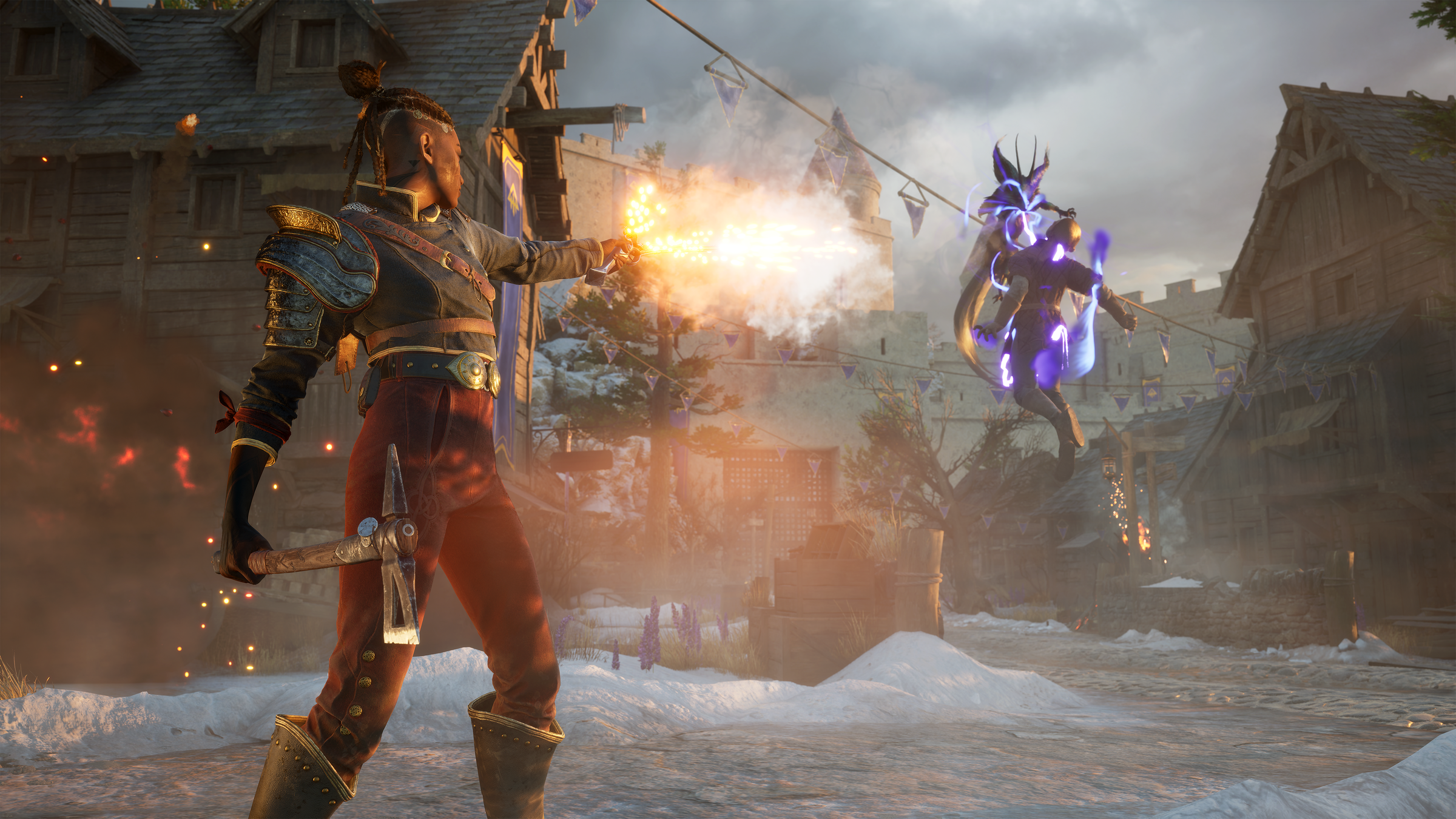
I felt like I was playing the sequel to a game that had introduced me to this world and these characters. Like I’d opened up to a late chapter in a thick fantasy book, without a glossary. While it was wonderful uncovering the weird world of Kian, I still felt detached from it.
I did love that Nor and Enki’s journey to defeat the gods does tangibly change the world. Villages can be rescued from bandits and others, returned — in the blink of an eye, with zero cutscenes — to the people. This opens up merchants and quests. Nor can also recruit NPC who provide permanent bonuses and equipment on her quest.
Flintlock makes for a comfortable introduction to the intimidating soulsborne genre and even creates its own unique spin with its risk-reward mechanic. However, I am hesitant to outright recommend it, given its lack of polish and repetitive play. Its varied environments and the central relationship between Nor and Enki deserve praise, but it doesn’t quite stick the landing for veterans of such action RPGs, let alone for newcomers.
Flintlock launches July 18th on PlayStation, Xbox, and PC.
